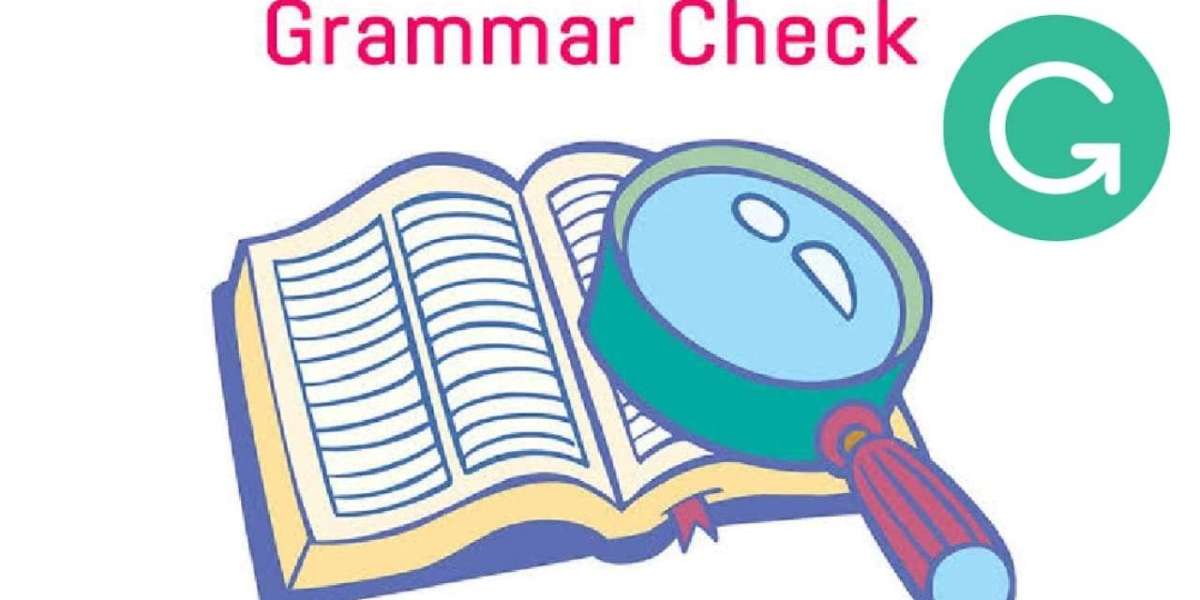Introduction
In the digital age, clear and effective writing is crucial. Whether you're crafting an academic paper, a business proposal, or a casual email, grammar plays a significant role in ensuring your message is understood. Enter grammar checkers: the unsung heroes of the writing world. These tools help refine your text, making it error-free and polished. But with so many options available, how do you choose the right one? In this article, we'll explore the benefits of free grammar checker, how they work, and why they might be the perfect tool for your writing needs.
Understanding Grammar Checkers
Before diving into specific tools, it's essential to understand what grammar checkers are and how they function.
How Grammar Checkers Work
Grammar checkers utilize algorithms and natural language processing (NLP) to scan your text for errors. They examine your writing against a set of rules and databases to identify mistakes in grammar, spelling, punctuation, and style. Some advanced tools also use machine learning to offer contextually relevant suggestions, making them smarter and more intuitive over time.
Types of Errors Detected
Grammar checkers are designed to catch a variety of issues:
- Spelling Errors: Misspelled words and typographical mistakes.
- Grammar Mistakes: Problems with verb tenses, subject-verb agreement, and sentence structure.
- Punctuation Issues: Incorrect or missing commas, periods, and other punctuation marks.
- Style Problems: Overuse of passive voice, wordiness, and readability concerns.
Free vs. Paid Grammar Checkers
Free grammar checkers provide a solid foundation for error detection and are suitable for most users. However, paid versions often come with additional features like advanced style suggestions, plagiarism detection, and more personalized recommendations. For those who need these advanced capabilities, investing in a paid tool might be worthwhile.
Features of a Good Grammar Checker
When evaluating grammar checkers, consider the following features:
User Interface and Experience
A grammar checker should be easy to navigate with a straightforward user interface. You want a tool that is intuitive and doesn’t require extensive training to use.
Accuracy and Reliability
Accuracy is crucial. A good grammar checker should reliably identify and correct errors without flagging correct sentences as mistakes. Check user reviews and testimonials to gauge the tool’s effectiveness.
Speed and Efficiency
Efficiency matters, especially when working with large documents. A good grammar checker should provide quick feedback without causing significant delays.
Compatibility and Integration
Choose a tool that integrates with your preferred writing platforms, such as Microsoft Word, Google Docs, or email clients. Browser extensions can also be useful for checking grammar on the fly.
Customization Options
Different writers have different needs. A grammar checker that allows customization—such as adjusting the tone, formality, or error types it focuses on—can be particularly beneficial.
How to Use Free Grammar Checkers Effectively
To get the most out of a free grammar checker, follow these guidelines:
Step-by-Step Guide to Using a Grammar Checker
- Paste Your Text: Copy and paste your text into the grammar checker’s interface.
- Review Errors: The tool will highlight potential errors and provide suggestions.
- Apply Corrections: Review and apply the suggested corrections. Use your judgment to decide if the suggestions fit your intended meaning.
- Recheck Your Text: After making changes, recheck your text to ensure it reads smoothly and that no new errors were introduced.
Common Mistakes to Avoid
- Ignoring Suggestions: Even if a suggestion seems minor, it can improve the overall quality of your writing.
- Overlooking Style Tips: Style suggestions can enhance readability and impact.
- Dependence on the Tool: Remember, no tool is perfect. Always review your text manually.
Tips for Maximizing Accuracy
- Use Multiple Tools: Running your text through several grammar checkers can help catch more errors.
- Understand Basic Grammar Rules: Familiarity with grammar rules can help you make better decisions when using the tool.
- Take Your Time: Don’t rush the process. Carefully review each suggestion and make informed decisions.
Pros and Cons of Free Grammar Checkers
Advantages of Using Free Tools
- Cost-Free: No need to invest money, making them accessible to everyone.
- Ease of Use: Simple interfaces and basic functionality are easy to navigate.
- Basic Error Detection: Adequate for catching common grammar and spelling mistakes.
Limitations and Drawbacks
- Feature Limitations: Free tools may lack advanced features found in paid versions.
- Accuracy Issues: They may not catch more subtle errors or provide comprehensive suggestions.
- Potential Ads: Free versions might be ad-supported, which can be distracting.
- Privacy Concerns: Be cautious about the privacy of your text, as some free tools may have less stringent data security measures.
Who Should Use Free Grammar Checkers?
Students and Educators
Students can use grammar checkers to enhance their writing assignments, while educators can employ them to review student work and provide feedback.
Content Writers and Bloggers
For content creators, maintaining high standards of grammar and style is essential. Free grammar checkers help ensure that content is professional and engaging.
Business Professionals
In the business world, clear communication is key. Grammar checkers help professionals produce polished reports, emails, and presentations.
Non-native English Speakers
For those learning English, grammar checkers provide valuable assistance in identifying and correcting language errors.
The Future of Grammar Checkers
AI and Machine Learning in Grammar Checking
As technology advances, grammar checkers are becoming more sophisticated. AI and machine learning are enhancing their ability to detect errors and offer contextually relevant suggestions, leading to even more accurate and personalized feedback.
Potential Developments in Free Tools
We can expect free grammar checkers to become more feature-rich, with improvements in error detection, customization, and integration. Future developments may also include enhanced support for multiple languages and more advanced style analysis.
Conclusion
Free grammar checkers are invaluable tools for anyone who writes regularly. They offer a cost-effective way to ensure your writing is clear, correct, and professional. While they may have limitations compared to paid versions, their benefits far outweigh the drawbacks for most users. Whether you’re a student, a business professional, or just someone looking to improve their writing, a free grammar checker can be a game-changer.
FAQs
What is the best free grammar checker?
The best free grammar checker depends on your needs. Grammarly, Hemingway Editor, and LanguageTool are highly recommended, each with its unique strengths.
Can a free grammar checker replace a human editor?
While free grammar checkers are useful, they cannot fully replace a human editor. They are best used as a tool to assist in catching errors and improving writing quality.
Are free grammar checkers safe to use?
Most reputable free grammar checkers are safe. However, it’s essential to review their privacy policies to understand how your data is managed and protected.


